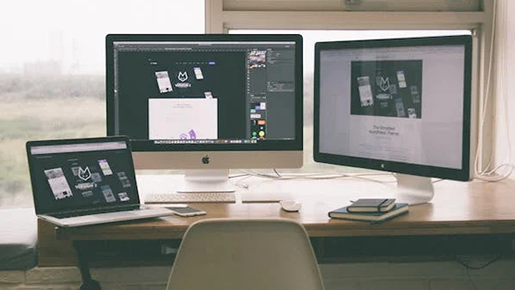
As a freelance artist, you know that it is important to have a solid business plan in place. This can help ensure your success as a freelancer. In this blog post, we will discuss some of the most important things you need to do when working as a freelance artist. We will also provide you with some helpful solutions that can make your business run more smoothly!
1. An invoice template
As a freelance artist, one of the most important things you need to do is keep track of your finances. This includes creating invoices for each project you complete. An invoice template can be a great way to save time when creating invoices. There are many different templates available online, or you can create your own using a word processing program. The invoice templates should include all of the necessary information, such as your contact information, the project details, and the total amount due. When creating an invoice, be sure to include all relevant information such as the client’s name, contact information, project details, and the total amount due. You should also include your contact information and payment terms. Be sure to send invoices out promptly so that you can get paid promptly!
2. A contract
As a freelance artist, it is important to have a contract in place before beginning any project. A contract can help protect you and your work. It should include all of the details of the project, such as the scope of work, timeline, payment terms, and any other relevant information. Be sure to read over the contract carefully before signing it. If there are any questions or concerns, be sure to address them with the client before moving forward with the project. Having a contract in place can help prevent misunderstandings and disagreements down the road. The contract should be clear and concise, and both parties should sign it before work begins.
3. A portfolio
As a freelance artist, it is essential to have a strong portfolio. Your portfolio should showcase your best work and highlight your skills and talents. It is important to update your portfolio regularly, as it can help you attract new clients and projects. There are many ways to create a portfolio, such as using an online platform or creating a physical book. If you are not sure where to start, there are plenty of resources available online that can help you create a professional-looking portfolio.
4. Strong networking skills
As a freelance artist, it is important to network with other professionals in your field. This can help you find new clients and projects, as well as get advice and feedback from other artists. There are many ways to network, such as attending industry events, joining professional organizations, or connecting with other artists online. Building strong relationships with other professionals in your field can be a great asset to your career. Also, don’t forget to network with people outside of your field, as they may be able to provide you with new opportunities as well.
5. Good time management skills
As a freelance artist, you need to be able to manage your time effectively. This includes being able to complete projects on time and meeting deadlines. Good time management skills are essential for any freelancer, as they can help you stay organized and avoid missing important deadlines. There are many resources available online that can help you learn more about effective time management techniques. Some time management tips for freelancers include creating a daily schedule, setting deadlines, and taking breaks when needed.
6. A positive attitude
As a freelance artist, it is important to maintain a positive attitude. This can be difficult at times, especially when dealing with rejection or criticism. Remember that not every project will be a success, but it is important to learn from your mistakes and keep moving forward. A positive attitude can help you attract new clients and opportunities, as well as stay motivated throughout the ups and downs of freelancing. No matter what stage you are at in your freelance career, having these solutions in place can help you run your business more smoothly.

By following these tips, you can set yourself up for success as a freelance artist. Having a solid business plan in place is essential, and be sure to keep track of your finances, create contracts, and build a strong portfolio. In addition, networking with other professionals and honing your time management skills can help you succeed in this competitive field. With these solutions in place, you can be on your way to a successful career as a freelance artist!

